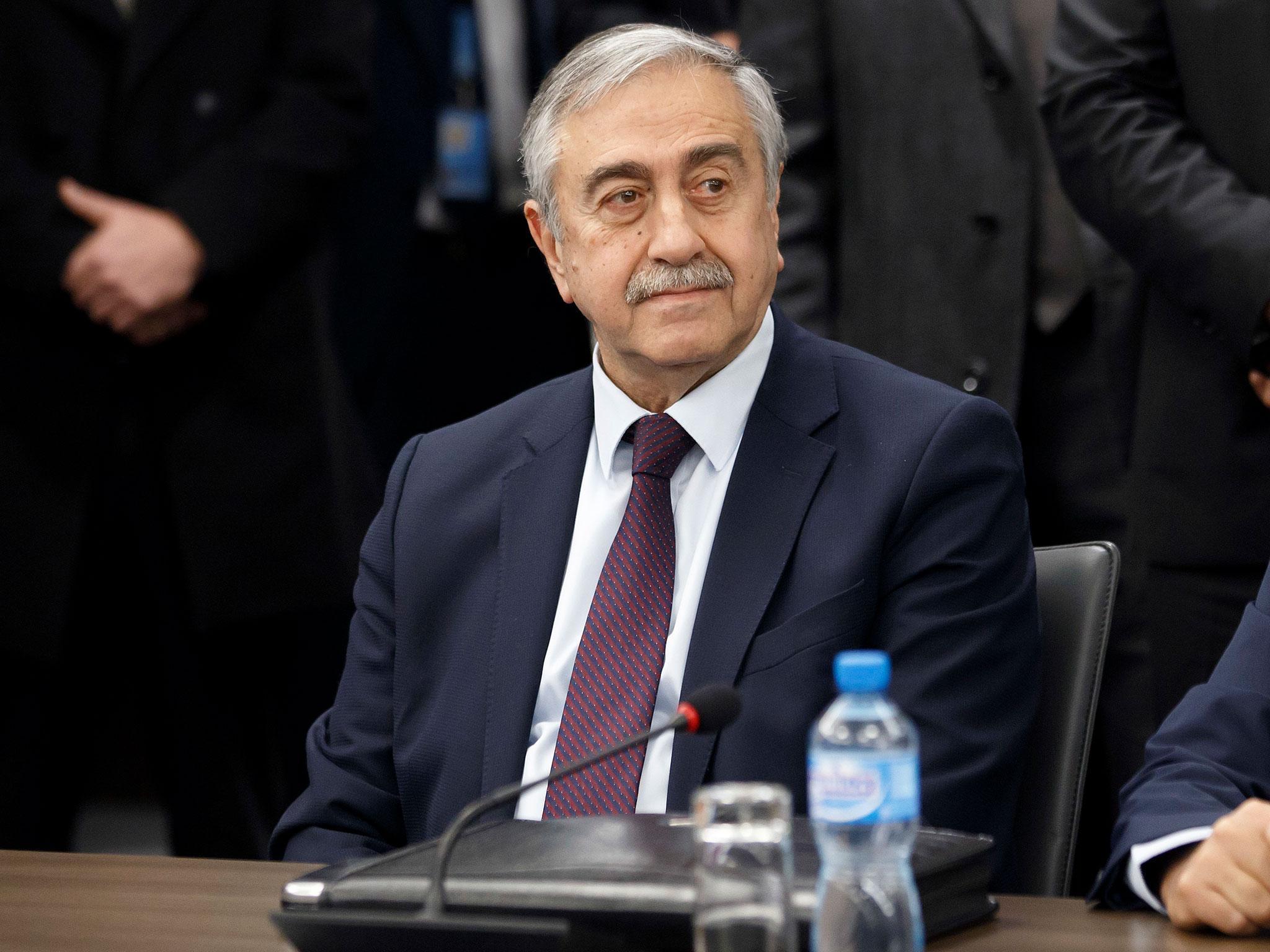Only a partitioned island will bring the dispute between Turkish and Greek Cypriots to an end
In one of its worst strategic decisions ever, the European Union (sadly, with UK acquiescence) had agreed that Cyprus should join the EU on 1 May 2004, whether agreement had been reached with the Turkish Cypriots or not


Your support helps us to tell the story
From reproductive rights to climate change to Big Tech, The Independent is on the ground when the story is developing. Whether it's investigating the financials of Elon Musk's pro-Trump PAC or producing our latest documentary, 'The A Word', which shines a light on the American women fighting for reproductive rights, we know how important it is to parse out the facts from the messaging.
At such a critical moment in US history, we need reporters on the ground. Your donation allows us to keep sending journalists to speak to both sides of the story.
The Independent is trusted by Americans across the entire political spectrum. And unlike many other quality news outlets, we choose not to lock Americans out of our reporting and analysis with paywalls. We believe quality journalism should be available to everyone, paid for by those who can afford it.
Your support makes all the difference.Earlier this summer the 11th international effort to strike a deal between the Turkish and Greek Cypriots was rejected by the Greek-Cypriot government – as every previous one has been. So, whatever its terms, will the next, and the next. It is time to end the charade that negotiated agreement to unite the island with a “bizonal, bicommunal” government will ever be possible. The solution is to partition the island and give international recognition to the Turkish-Cypriot state in the north.
Here’s why:
Turkey invaded Cyprus in late July 1974. But that was a reaction to a coup d’étât by Greece (run then by a far-right military junta) and elements of the Cyprus National Guard in early July 1974 which ousted the elected, Greek-Cypriot President Makarios, who narrowly escaped the plotters with his life. At the UN Security Council Makarios claimed that Greece had invaded Cyprus. The plotters’ explicit aim was to unite Cyprus with mainland Greece, regardless of the interests of the Turkish-Cypriot community (around one-fifth of the population) and international agreements.
After some Turkish-Cypriot enclaves had been subject to some pretty terrible atrocities, Turkish forces on the island were dramatically increased in August 1974. Tens of thousands of Turkish troops have been on the island ever since. The Turkish-Cypriot north later declared itself “The Turkish Republic of Northern Cyprus” (TRNC) but it lacks any international recognition save by Turkey.
The Greek junta itself fell as a result of the Cyprus coup. There was then a ceasefire. It can be argued, as many have done, that the Turks overreacted by the number of troops they have stationed on the island ever since. But it’s hard to argue that the Turkish government should simply have sat on their hands. Certainly the UK would not have done, if it had been a British minority under such a threat.
Endless, mainly UN-sponsored, negotiations have taken place since. A reduction in Turkish troop numbers have been part of these negotiations. One of the most important was the 2004 “Annan” plan, painstakingly negotiated by then UN Secretary-General Kofi Annan and his special representative for Cyprus, Alvaro de Soto, to provide a federal, “bizonal” and “bicommunal” constitution. The plan was approved overwhelmingly in referenda by the Turkish Cypriots but was rejected by an even bigger margin by the Greek Cypriots.
The fundamental problem was – and remains – that the Greek Cypriots had no incentive to sign up to the deal. In one of its worst strategic decisions ever, the European Union (sadly, with UK acquiescence) had agreed that Cyprus should join the EU on 1 May 2004, whether agreement had been reached with the Turkish Cypriots or not. To add insult to injury to the north, it is the whole island which formally has acceded to membership, including the unrecognised and unrepresented TRNC.
My Foreign Office colleague, Minister of State Baroness Symons, said at the time: “The Turkish Cypriots can reasonably ask that they should not be the victims of this setback, and yet it is they who are left in limbo outside the European Union. But what is now needed, surely, is to remove all discrimination against people who are, after all, citizens of the European Union and to prepare the Turkish Cypriots and their legislation and administrative practices for eventual European membership.”
However, in limbo is exactly where the Turkish Cypriots have been left. Initial efforts by the Foreign Affairs Council of the EU to ameliorate some of the problems which have faced the north quickly came to nothing – blocked by the ‘Government of Cyprus’.
Meanwhile, Greek-Cypriot Cyprus has hardly acquitted itself as a model member of the EU. It faced an existential banking crisis in 2012-13, caused in part by Cyprus’ role as Russia’s offshore banker of choice. Last month The Guardian claimed that the Cyprus government has raised more than €4bn since 2013 by providing citizenship (with rights across the EU) to foreign nationals, including “billionaire Russian oligarchs and Ukrainian business elites”.
For any negotiation of this kind to succeed, both sides have to be able to gain something. But, from the Greek Cypriot point of view, conceding political equality with the Turkish Cypriots means giving power away. If the quid pro quo had been EU membership, a deal in my view would have been agreed. But absent that, the reality is that however well intentioned, no Greek-Cypriot leader will ever be able to get their electorate behind a deal. The status quo for the south is simply too comfortable.
It’s time, in my view, for the international community to acknowledge this reality and recognise the partition of the island. That would be far more likely to improve relations between the two communities than continuing the useless merry-go-round of further negotiations for a settlement that never can be.
Jack Straw was British Foreign Secretary 2001-6.
Join our commenting forum
Join thought-provoking conversations, follow other Independent readers and see their replies
Comments